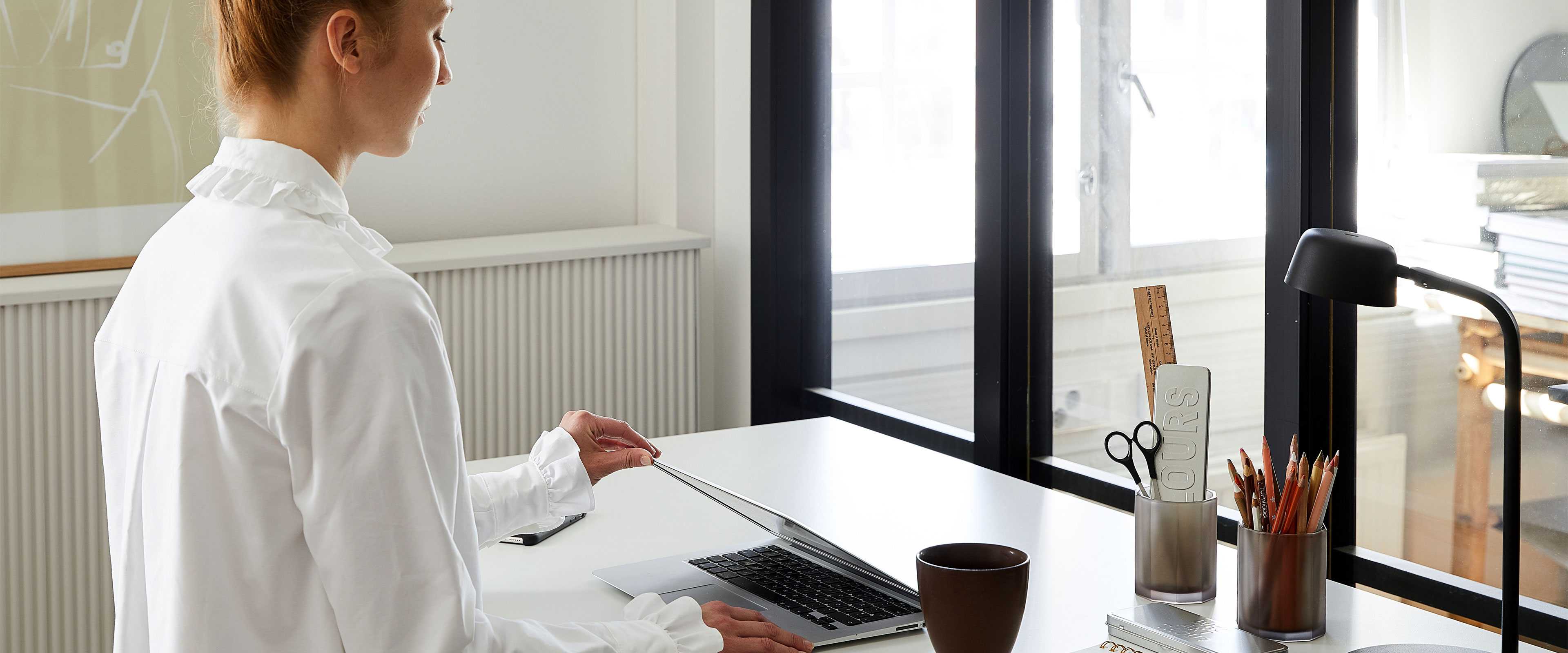Maintaining a balance between people and the environment
Maintaining a balance between people and environment is the main responsibility issue when it comes to hybrid work
1. Responsible workplace.
The environmental impacts of manufacturing a piece of furniture are only a part of the product’s impacts throughout its life cycle. If the piece of furniture is used for only a short period of time and then taken to landfill, its environmental impact is significantly greater than if it were serviced and used for decades and the furniture’s materials are recycled after use.
This is the ideal moment to discuss with your employer about furnishing the office and the home office in an environmentally friendly way and about the essential tools for work and how they can be smoothly integrated into the working experience every day.
2. Balanced use of space.
We are living in the golden age of hybrid work, where offices are still needed, but not in the same form as before the pandemic. This, naturally, poses challenges for the versatility of premises, as there may be considerable variation in the capacity utilisation rate, some of the furniture may have been taken to the home office, not to mention all the energy wasted in empty offices that are far too large.
The Workplace as a Service, (WaaS) model makes it possible to update the working environment in a flexible and cost-efficient way. Acquiring a workplace as a service is a responsible solution that allows the office to adapt very rapidly to changing needs. In the model, the office furniture no longer needed by the company is recycled and a modern workplace is created for the company, where the contents and monthly rent change according to needs. By optimising the use of space, companies can reduce their need for space, which is reflected in rental and maintenance costs. Workplace as a Service also removes the risk of ownership, meaning that the value of products will not decline.
3. Circular economy at the core.
The circular economy is a growing trend also as regards office furniture. This is especially the case now that ergonomic office furniture is needed at home as well as the office. You are hardly likely to take your desk or chair with you when you go from one work location to the other. Buying twice the amount of furniture is not environmentally responsible or a very sustainable investment from the perspective of corporate responsibility. This is precisely why the circular economy is a good idea.
Having said that, recycling is not always made easy, and money, time and expertise are needed to meet the increasingly strict environmental requirements.
With Martela’s services it is easy to recycle your office furniture responsibly. Martela observes the Waste Nothing circular economy principle in all its operations and thus strives to minimise its impact on the environment. Furniture that is in good condition but no longer needed is sold responsibly with some furniture being serviced and/or reupholstered before it is sold.
We collect the furniture for recycling and take care of all the necessary measures involved in recycling, including the required reporting. Furniture that is unfit for use is dismantled and the components sorted into wood, metal and plastic materials. The materials are then utilised either as parts for used furniture, as secondary raw materials or for energy production. Only a fraction of the furniture components will end up in landfill.
4. Environmental responsibility = balance between people and the environment.
The fact that our ways of working and where we work have changed radically over the past 18 months must not shift our attention away from the environment and a sustainable way of living. Quite the opposite – the changes introduced by the pandemic provide a real opportunity to reflect on the operations of the company from the perspective of responsibility, and to turn these ideas into action.
Responsibility is a consideration in our operations from the first brainstorming session to delivering the product from the warehouse and then recycling each of its components. As safety and sustainability are important to us, our products and furniture are designed so that their useful life is as long as possible.
We are also participating in the development of reliable and comparable ways of demonstrating carbon neutrality and the environmental benefits of circular economy solutions in the Carbon Neutrality Empowered by Handprint project led by VTT and LUT University.
For us the most important thing in responsibility is finding a balance between humans and the environment.
